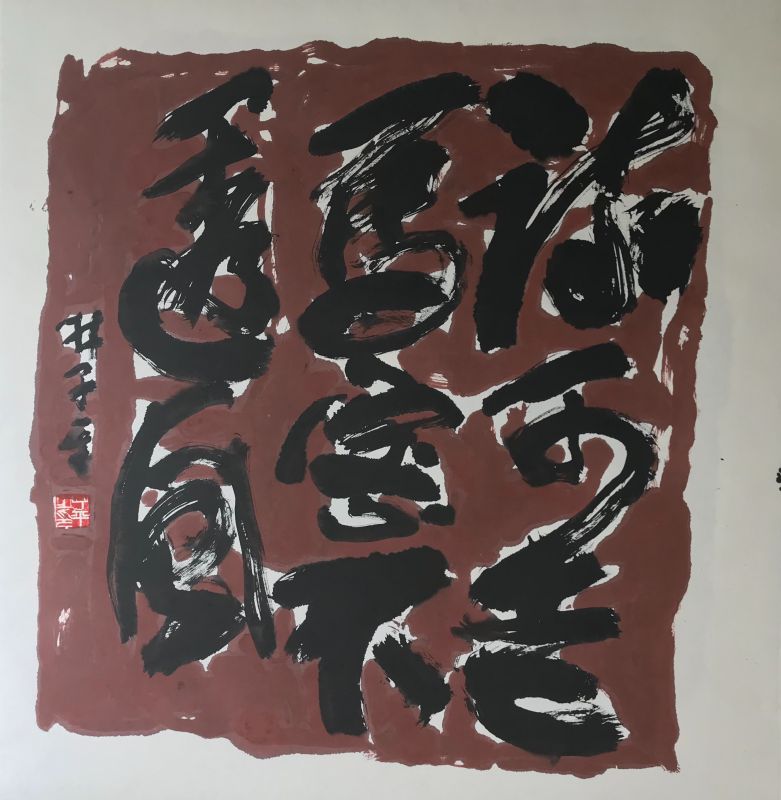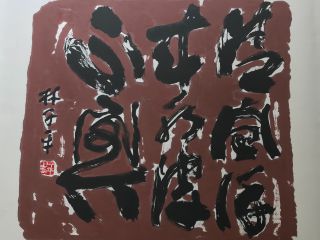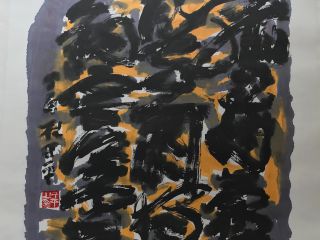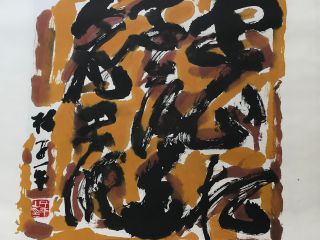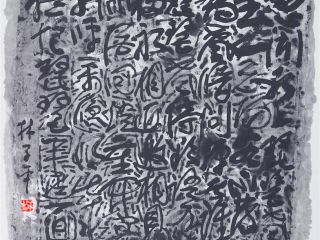Enquire
Chat with us on WhatsApp
Chat with us on WhatsApp
About the artwork
The phrase “疏可走马, 密不透风” (Shū kě zǒu mǎ, mì bù tòu fēng) by Deng Shiru is often interpreted metaphorically, describing two types of qualities—whether in nature, human endeavors, or artistic compositions. • “疏可走马” (Shū kě zǒu mǎ) literally means “so sparse that a horse can pass through.” This suggests an arrangement that is open or loosely structured, allowing space for freedom of movement. In art or calligraphy, this can be seen as allowing space for interpretation or flow, emphasizing balance and spaciousness. • “密不透风” (Mì bù tòu fēng) means “so dense that wind cannot pass through.” This implies something tightly structured or closely packed, leaving no gaps. Together, this phrase express a balance between two opposing qualities: the need for openness and looseness in some contexts, and the need for density and meticulousness in others. It’s often used to describe good composition, whether in art, literature, or other structured systems, suggesting that balance is key.
About the artist
Born in Singapore in 1921, Lim Tze Peng is one of Singapore’s most significant artists and a living legend. Renowned for his Chinese ink creations of post-independence Singapore, he also practices Chinese calligraphy. Alongside local and international exhibitions, his masterpieces are exhibited in prominent Singapore institutions and part of many prestigious collections. Lim has been bestowed several awards including the Special Prize at the Commonwealth Art Exhibition in England in 1977 and the prestigious Cultural Medallion in Singapore in 2003. In May 2012, he broke records with the sale of his works at a Christies auction in Hong Kong.



